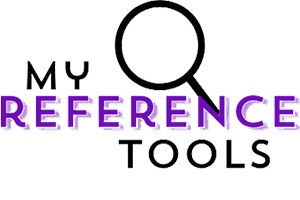Which Supplement Smarts Are Worth the Money for Busy Professionals?

For many busy professionals, juggling careers, personal lives, and everything in between can leave little time to focus on nutrition and overall well-being. Supplements can be a helpful way to fill nutritional gaps, boost energy, improve focus, and manage stress. But with so many options on the market, it can be hard to know which ones are truly worth your money.
This guide breaks down the supplements that are backed by science and tailored to the needs of busy professionals. From enhancing mental clarity to supporting overall health, here’s what you need to know to make informed, health-conscious choices.
Why Do Busy Professionals Need Supplements?
Busy schedules can often lead to skipped meals, inadequate nutrition, and higher stress levels, which can affect overall health and performance. While no pill can replace a balanced diet, certain supplements can:
- Address nutritional deficiencies
- Boost energy and stamina
- Support cognitive function for sharp focus
- Help reduce stress and improve resilience
Making smart supplement choices means prioritizing evidence-based benefits and focusing on filling your unique nutritional gaps.
The Must-Have Supplements for Professionals
1. Multivitamins
Most of us don’t get all the vitamins and minerals we need from food alone. A high-quality multivitamin can help bridge this gap.
Why They’re Worth It:
Multivitamins provide a blend of essential nutrients like:
- Vitamin D: Essential for bone health and immune support, especially if you work indoors.
- B Vitamins: Help convert food into energy and support brain function.
- Magnesium: Helps combat fatigue and supports muscle health.
How to Choose:
Look for a multivitamin that is tailored to your demographic (e.g., age, gender). Ensure it’s free from unnecessary fillers and additives.
Pro Tip: Take your multivitamin with a meal to improve absorption.
2. Omega-3 Fatty Acids (Fish Oil or Algae-Based Alternatives)
Omega-3s are essential fats that your body can’t produce on its own. They are known to support brain function, heart health, and reduce inflammation.
Why They’re Worth It:
- Improve focus and memory
- Help combat stress-induced inflammation
- Support cardiovascular health
What to Look For:
- DHA and EPA content should total at least 500–1,000 mg per serving.
- Choose products labeled as third-party tested to ensure purity and lack of heavy contaminants.
Bonus for Vegans: Algae-based omega-3 supplements are a great plant-based alternative to fish oil.
3. Adaptogens for Stress Management
Adaptogens are natural substances that help your body adapt to stress and restore balance. Popular ones include ashwagandha, rhodiola rosea, and ginseng.
Why They’re Worth It:
- Ashwagandha can reduce cortisol levels (the stress hormone) and promote a sense of calm.
- Rhodiola rosea has been shown to improve focus, stamina, and resilience during stressful times.
- Ginseng may enhance energy levels without the jitters associated with caffeine.
How to Use Them:
- Take adaptogens daily or during particularly stressful periods.
- Look for standardized extracts for consistent potency.
Important Note: Always consult with a healthcare provider, especially if you’re on medication, as some adaptogens may interact with certain drugs.
4. Probiotics for Gut and Immune Health
A healthy gut isn’t just about digestion; it also plays a key role in immunity, energy levels, and even mood regulation. Probiotics replenish beneficial bacteria in your gut.
Why They’re Worth It:
- Improve digestion, especially for those with stressful or irregular eating habits.
- Support the immune system to keep you feeling your best.
- Emerging research suggests probiotics may improve mood by enhancing the gut-brain connection.
What to Look For:
- Choose probiotics with multiple strains like Lactobacillus and Bifidobacterium.
- Look for a minimum of 10 billion CFUs (colony-forming units) per serving.
- Check for proper packaging (capsule or refrigerated) to ensure live cultures remain active.
Pro Tip: Pair probiotics with fiber-rich foods to help the bacteria thrive.
5. Vitamin D
Vitamin D is crucial for bone health, immune function, and energy. Many professionals spend their days indoors, leading to widespread deficiencies.
Why It’s Worth It:
- Boosts immunity to keep sick days at bay.
- Helps with mood regulation, particularly in darker months.
- May improve energy levels and muscle strength.
How to Choose:
Opt for Vitamin D3, as it’s more effective than D2. A dosage of 1,000–2,000 IU per day is often recommended, but it’s best to confirm your levels with a blood test.
6. Magnesium
Known as the “relaxation mineral,” magnesium is essential for hundreds of bodily processes, yet it’s often overlooked.
Why It’s Worth It:
- Relieves muscle tension and promotes relaxation.
- Supports better sleep quality.
- Aids in energy metabolism and reduces feelings of fatigue.
Best Forms:
Magnesium glycinate or citrate are highly absorbable and gentle on the stomach.
How to Use:
Take magnesium before bedtime to enhance relaxation and sleep.
7. Caffeine Alternatives for Energy
While coffee is a go-to energy booster for many professionals, it can lead to crashes and over-reliance. Consider alternatives like green tea extract or l-theanine.
Why They’re Worth It:
- Green tea extract provides a dose of caffeine balanced with antioxidants for sustained energy.
- L-theanine promotes relaxation without drowsiness and pairs well with caffeine for a calm, focused buzz.
How to Use:
Take l-theanine alongside your morning coffee for a smoother, sustained focus.
Avoiding Unnecessary Supplements
Not all supplements are created equal. Here are some that professionals might not need to splurge on:
- Fat Burners: These can be ineffective at best and harmful at worst. Regular exercise and a balanced diet are safer ways to manage weight.
- Detox Supplements: Your liver and kidneys naturally detox your body, making these supplements largely unnecessary.
- Excessive Vitamins: Over-supplementing beyond what your body needs can strain your health and wallet.
Rule of Thumb: When in doubt, consult your doctor or dietitian about which supplements, if any, are best suited to you.
Tips for Choosing High-Quality Supplements
- Look for Third-Party Testing: Choose brands certified by organizations like NSF International or USP, which verify quality and potency.
- Read Labels Carefully: Avoid fillers, artificial dyes, or excessive sugar.
- Stick to Trusted Brands: Research the reputation of brands and read customer reviews for additional insights.
- Know Your Needs: Keep your health goals, lifestyle, and personal deficiencies in mind instead of buying into trends.
Pro Tip: It’s always good to prioritize whole, nutrient-dense foods as your first source of vitamins and minerals.
Supplements can be a great tool for busy professionals looking to improve energy, focus, and overall health. By choosing evidence-based options like multivitamins, omega-3s, adaptogens, and probiotics, you can support your body and mind without breaking the bank.
But remember, supplements are just that—supplements. Pair them with a balanced diet, regular exercise, and stress-management practices for optimal results. When in doubt, seek guidance from a healthcare professional to create a plan that works for you.



